Paleoanthropology
Paleoanthropology is the scientific study of human evolution through the examination of fossil remains, including bones, teeth, and tools. It combines the disciplines of paleontology (the study of ancient life through fossil records) and anthropology (the study of human societies and cultures).
Key Concepts in Paleoanthropology
- Fossil Evidence: Paleoanthropologists use fossil evidence to understand the physical and behavioral traits of ancient human species.
- Human Evolution: The study of paleoanthropology helps us understand how humans and their ancestors evolved over time.
- Tool Use and Technology: Examination of ancient tools and artifacts provides insights into the cognitive abilities and cultural practices of early humans.
- Environmental Context: Paleoanthropologists consider the environmental conditions in which ancient humans lived, including climate, geography, and available resources.
Methods Used in Paleoanthropology
Paleoanthropologists utilize various scientific methods to analyze and interpret fossil evidence, including:
- Comparative Anatomy: Comparing the physical characteristics of fossilized remains with those of modern humans and other primates.
- Carbon Dating: Using radiocarbon and other dating techniques to determine the age of fossilized specimens.
- Genetic Analysis: Extracting ancient DNA from fossils to understand genetic relationships and evolutionary patterns.
- Isotopic Analysis: Examining isotopic ratios in fossilized bones to infer dietary habits and migration patterns of ancient humans.
Study Guide for Paleoanthropology
If you're studying paleoanthropology, here are some key areas to focus on:
- Understand the major milestones in human evolution, including the emergence of Homo sapiens and their migration out of Africa.
- Learn about important hominid species such as Australopithecus, Paranthropus, and Homo erectus, and their respective traits and adaptations.
- Explore the cultural and technological developments of early humans, including the use of fire, development of stone tools, and artistic expressions.
- Examine the relationship between environmental changes and human evolution, including the impact of climate shifts on human migration and adaptation.
- Consider the ethical and social implications of paleoanthropological research, including the treatment of indigenous communities and the responsible management of fossil resources.
◂Science Worksheets and Study Guides Seventh Grade. Cell Reproduction
Study Guide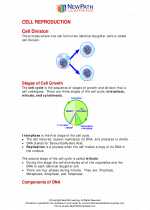 Cell Reproduction
Cell Reproduction  Activity Lesson
Activity Lesson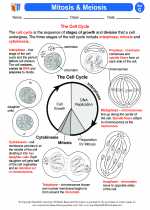 Mitosis & Meiosis
Mitosis & Meiosis  Worksheet/Answer key
Worksheet/Answer key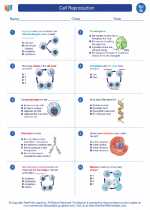 Cell Reproduction
Cell Reproduction  Worksheet/Answer key
Worksheet/Answer key Cell Reproduction
Cell Reproduction  Worksheet/Answer key
Worksheet/Answer key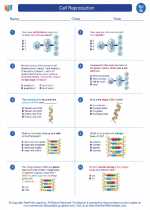 Cell Reproduction
Cell Reproduction  Vocabulary/Answer key
Vocabulary/Answer key Cell Reproduction
Cell Reproduction  Vocabulary/Answer key
Vocabulary/Answer key Cell Reproduction
Cell Reproduction  Vocabulary/Answer key
Vocabulary/Answer key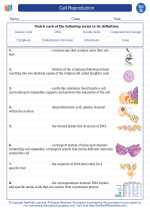 Cell Reproduction
Cell Reproduction  Vocabulary/Answer key
Vocabulary/Answer key Cell Reproduction
Cell Reproduction  Vocabulary/Answer key
Vocabulary/Answer key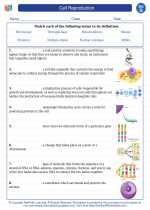 Cell Reproduction
Cell Reproduction  Vocabulary/Answer key
Vocabulary/Answer key Cell Reproduction
Cell Reproduction  Vocabulary/Answer key
Vocabulary/Answer key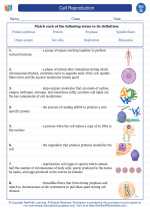 Cell Reproduction
Cell Reproduction  Vocabulary/Answer key
Vocabulary/Answer key Cell Reproduction
Cell Reproduction 

 Activity Lesson
Activity Lesson
 Worksheet/Answer key
Worksheet/Answer key
 Worksheet/Answer key
Worksheet/Answer key
 Worksheet/Answer key
Worksheet/Answer key
 Vocabulary/Answer key
Vocabulary/Answer key
 Vocabulary/Answer key
Vocabulary/Answer key
 Vocabulary/Answer key
Vocabulary/Answer key
 Vocabulary/Answer key
Vocabulary/Answer key
 Vocabulary/Answer key
Vocabulary/Answer key
 Vocabulary/Answer key
Vocabulary/Answer key
 Vocabulary/Answer key
Vocabulary/Answer key
 Vocabulary/Answer key
Vocabulary/Answer key

The resources above cover the following skills:
LIFE SCIENCE
From Molecules to Organisms: Structures and Processes
Gather and synthesize information to explain how prokaryotic and eukaryotic cells differ in structure and function, including the methods of asexual and sexual reproduction.